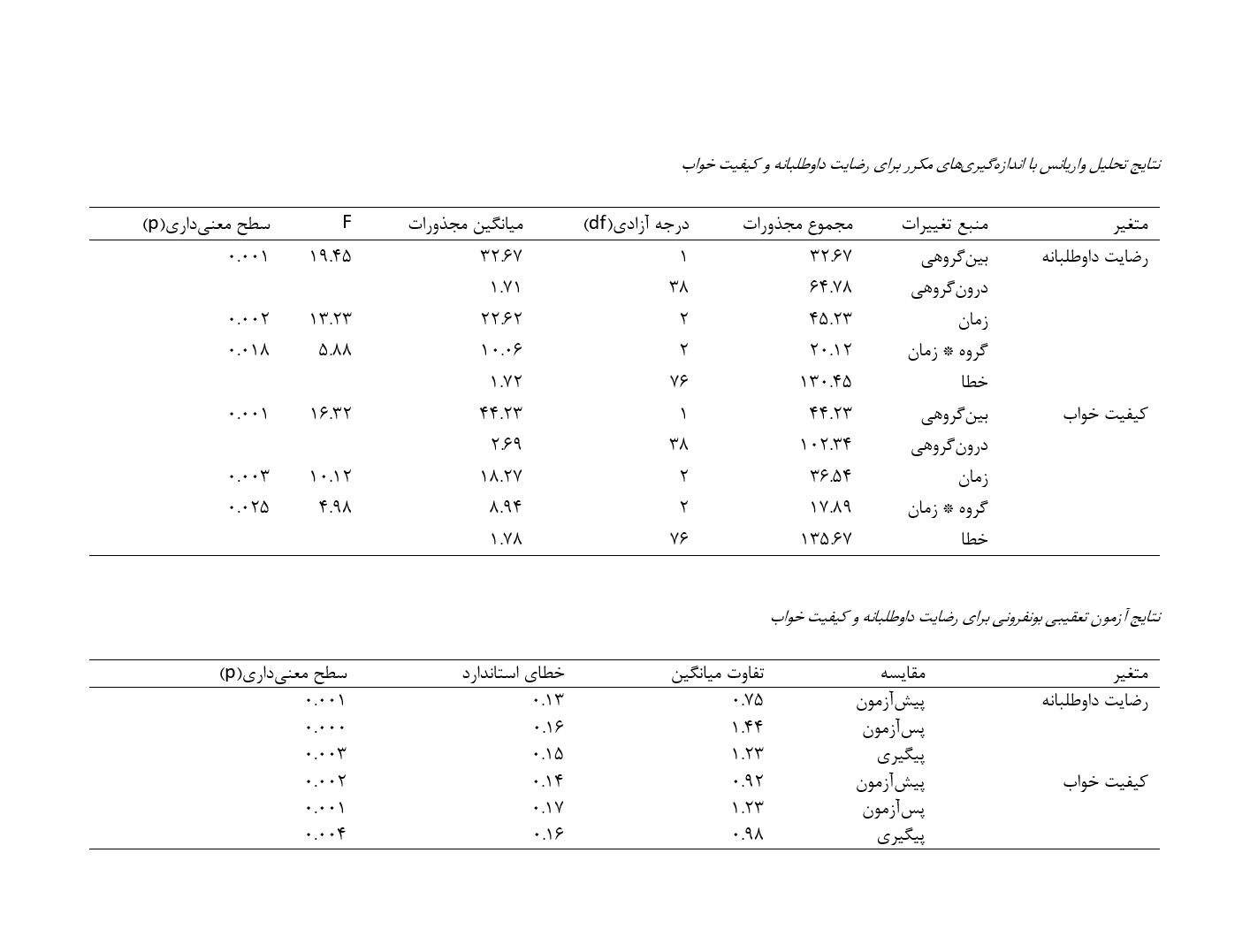The Effectiveness of Schema Therapy and Social Engagement Programs on Volunteer Satisfaction and Sleep Quality in the Elderly
Keywords:
Schema therapy, Social engagement, Volunteer satisfaction, Sleep quality, ElderlyAbstract
This study aims to evaluate the effectiveness of schema therapy combined with social engagement programs on volunteer satisfaction and sleep quality in the elderly. This randomized controlled trial included 40 elderly participants from Tehran, divided into intervention and control groups, each consisting of 20 participants. The intervention group participated in twelve 75-minute weekly sessions that combined schema therapy with social engagement activities. The control group received no intervention. Data were collected at three time points: pre-test, post-test, and four-month follow-up. Analysis of variance with repeated measurements (ANOVA) and Bonferroni post-hoc tests were used to analyze the data, with SPSS-27 software. Descriptive statistics indicated that the intervention group showed significant improvements in both volunteer satisfaction and sleep quality compared to the control group. The ANOVA results demonstrated significant main effects for group and time, and significant interaction effects between group and time for both variables. Post-hoc tests confirmed significant differences in volunteer satisfaction and sleep quality between the intervention and control groups at all three time points. The results suggest that combining schema therapy with social engagement programs can significantly enhance volunteer satisfaction and sleep quality in the elderly. These findings highlight the importance of integrated interventions that address both psychological and social aspects of well-being in older adults. Future research should explore the long-term effects and potential applications of these interventions in diverse populations.



















